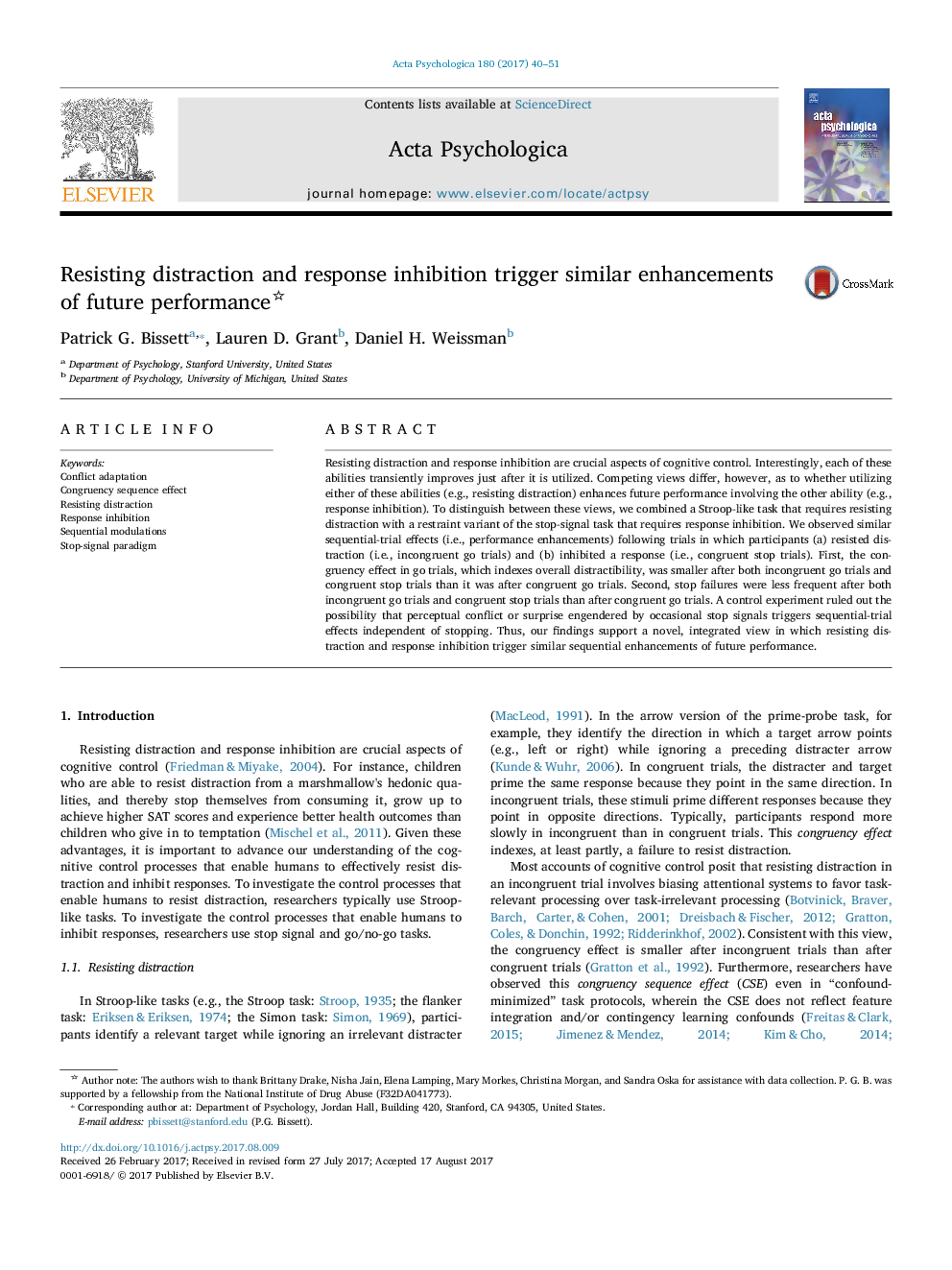ترجمه فارسی عنوان مقاله
منعکس کننده مقاومت و مهار پاسخ موجب افزایش مشابه عملکرد آینده می شود
عنوان انگلیسی
Resisting distraction and response inhibition trigger similar enhancements of future performance
| کد مقاله | سال انتشار | تعداد صفحات مقاله انگلیسی |
|---|---|---|
| 124050 | 2017 | 12 صفحه PDF |
منبع

Publisher : Elsevier - Science Direct (الزویر - ساینس دایرکت)
Journal : Acta Psychologica, Volume 180, October 2017, Pages 40-51
ترجمه کلمات کلیدی
سازگاری دفاعی، اثر توالی متقابل، حواس پرتی مقاومت، مهار پاسخ تعدیل های متوالی، پارادایم توقف سیگنال،
کلمات کلیدی انگلیسی
Conflict adaptation; Congruency sequence effect; Resisting distraction; Response inhibition; Sequential modulations; Stop-signal paradigm;

